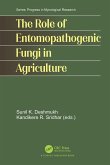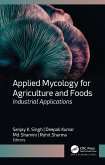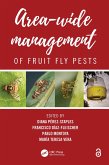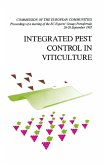This book reviews molecular aspects of the pathogenesis of entomopathogenic fungi, the development of mycoinsecticides, and its regulatory aspects. It addresses different aspects of entomopathogenic fungi, including host-pathogen interactions (susceptibility and resistance), fungus-insect and fungus-fungus dual interactions, phylogeny and taxonomy, biochemistry, and molecular basis of enteropathogenesis, market potential of entomopathogens, regulatory aspects, bioprospecting of fungi, fungi as crop bodyguards and in disease suppression, and consortia for the control of insect pests and pathogens in single crop systems.
Dieser Download kann aus rechtlichen Gründen nur mit Rechnungsadresse in A, B, BG, CY, CZ, D, DK, EW, E, FIN, F, GR, HR, H, IRL, I, LT, L, LR, M, NL, PL, P, R, S, SLO, SK ausgeliefert werden.









